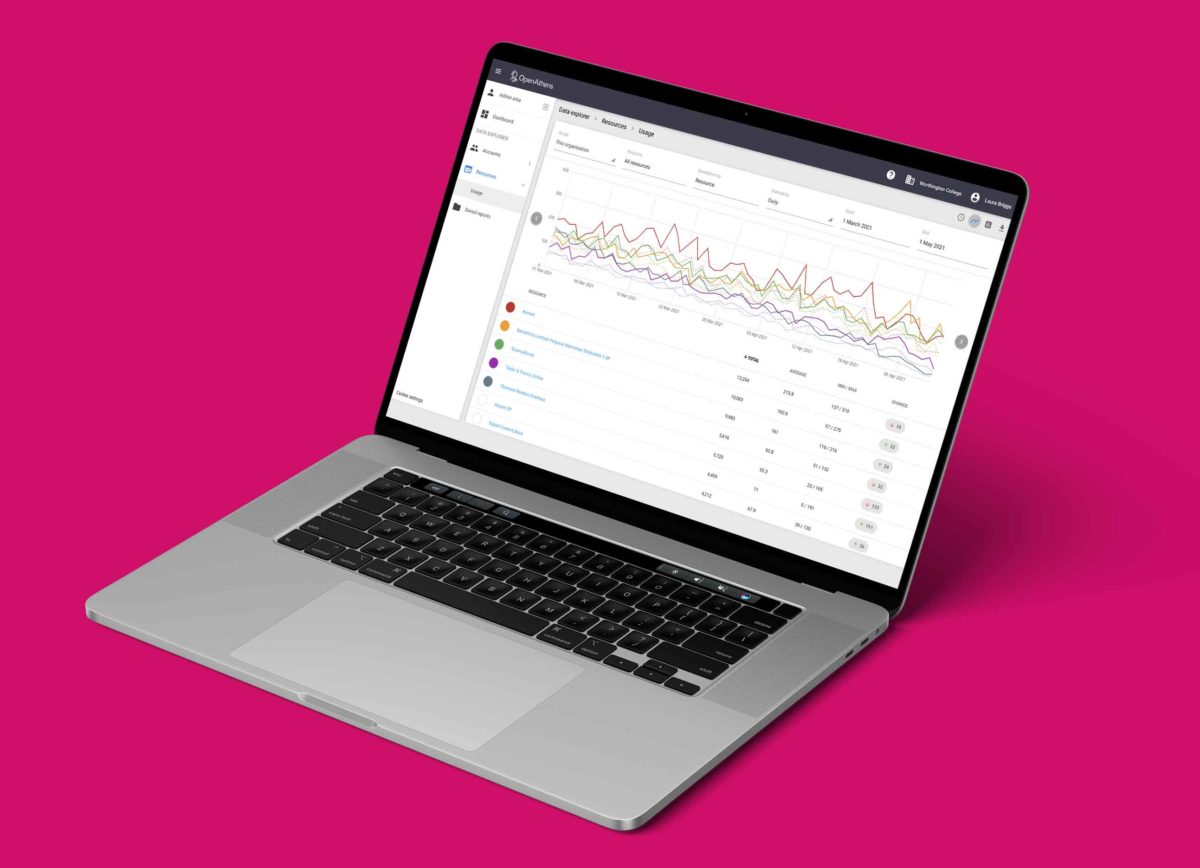
Granular stats drill deeper into content usage
"Libraries can get more granularity from COUNTER reports, thanks to a recently adopted analytics tag – while community-agreed standards help protect privacy" says Rob Scaysbrook, head of global sales and partnerships at OpenAthens
As a librarian or information manager for a large organization, you know how important it is to understand the different types of usage you get from the licensed resources you invest in.
That said, understanding exactly how staff or students are using content can be tricky. Even when you are using the COUNTER standard to help compare usage statistics in a consistent way.
For example, if a group of postgraduate learners in a faculty are using a B2B journal to inspire business ideas, that’s a high-value interaction with content. But it may be hard to capture in existing stats.
Or if you have several corporate departments in a business who all use licensed content, you might struggle to know how to allocate it fairly to internal budgets.
This means it’s helpful to have some granularity in your usage data.
To help solve this, the federated access community has recently adopted a data attribute, offering granular usage reporting for customers who use the COUNTER standard.
Adding value to federated access
The attribute, known as eduPersonAnalyticsTag, works by building on one of the strengths of federated access: the fact that it’s you, the identity provider, who should remain in control of data you share. You choose what information you release to publishers for specific purposes.
So not only can you start to design your own reporting based on the group categories you choose; you also have control over privacy.
With federated access, the authentication data of individual users is not shared directly with publishers.
If you want publishers to be able to provide you with more granular data about usage for the purposes of reporting, then you would need to share more information with them – but only as far as you allow.
To help preserve privacy, the attribute standard adopted by REFEDS (which represents identity federations) advises that granularity should be “coarse enough to prevent unintentional identification of subjects”.
Granular usage stats piloted by Elsevier
The attribute has already been in a pilot phase, with Elsevier being the first publisher to deliver it via federated access.
Elsevier began piloting it in April 2022 for its ScienceDirect service – using it with 10 customers, including both corporations and organizations in education and healthcare.
Two of the pilot customers were also customers of OpenAthens, and we partnered with Elsevier for the eduPersonAnalyticsTag project.
A significant driver for the pilot was demand from users of licensed content, according to Nicolai Humphreys, senior product manager at Elsevier.
The tag is presented, he says, as an extra column in a COUNTER-compliant report, letting customers break down data further. For example, by different departments or geographical locations.
For example, one pilot customer, he adds, decided to send both “department” and “country” information via the attribute. They can now break down content usage using either field or both, while protecting the identity of individuals.
Other possible applications could be a cost code, an overseas campus or partner college.
The fantastic thing, is that we don’t need to know these values in advance, [or] negotiate anything; we simply agreed on the name and format of the attribute – and the customer can send multiple attributes, on any level of granularity relevant to them, as long as it’s privacy-preserving.
Making the case for federated access
In future, innovations like the eduPersonAnalyticsTag can continue to support the business case for federated access to resources.
As a library, if you’re able to see the value in the content you’re subscribing to, you also gain more value from the technologies you invest in.
And if you’re a publisher, why not start offering the eduPersonAnalyticsTag to your customers? It’s a way to give libraries the granular usage statistics they want, while getting the benefits of federated access.
I wish more publishers would implement this. The more that usage is decoupled from access control, the fewer access issues users are going to have –and that means a more seamless and better user experience overall, which is great for everybody.
OpenAthens worked with Elsevier on the creation of this blog and Research Information opinion piece.
A full version of this article was published in Research Information on 28 April 2023.

How to set up granular usage stats
Follow our guidance on how to setup eduPersonAnalyticsTag attribute for more granular usage reporting.
